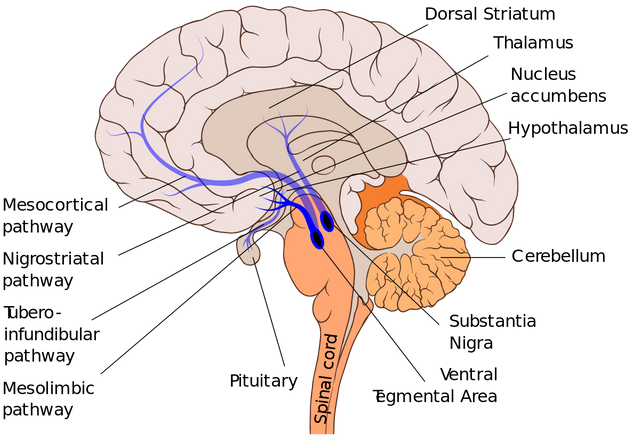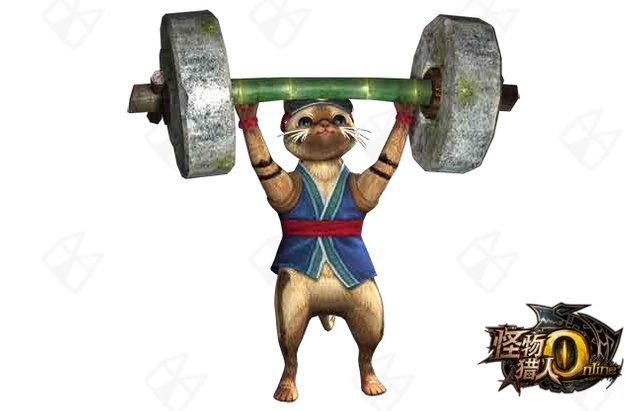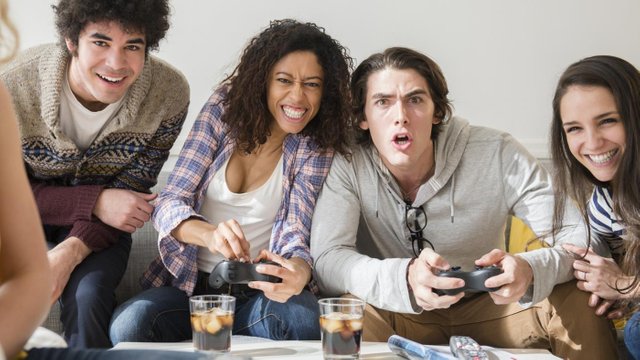Gaming and Lifting: An Unlikely Pair
Video games are not commonly associated with a healthy life and for good reason. There is no physical benefit to sitting in your chair or on a couch, playing video games. Too much gaming breeds poor posture and causes eye strain. And in some cases, video games can go from being a harmless hobby to massively reducing outdoor activity and face-to-face human interaction.
But as more and more people start playing video games, studies and articles have begun exploring the potential behind video games as a positive hobby, and part of a healthy life. You can get your gaming fix and live a healthy life - if you understand how games affect your brain, and how you can use that effect to your own benefit.
We'll explore the role gaming can play in a balanced, healthy lifestyle, and we'll cover how the core gameplay loop behind every video game can help you build focus, determination, and mental acuity.
Your Brain on Success
Our brains have evolved to innately promote certain behavior. We have built-in "feelings" and cues that help us attend to our basic needs. Pain is a system that exists to protect wounds and force us to create a healing environment. Thirst exists to fight dehydration. Hunger exists to remind us to eat and motivate us to seek out food. When we fast, our body makes appropriate changes to help in the acquisition of food - our awareness improves, for example.
Certain non-essential behavior also affects the same parts of the brain. Humans love to compete, and we possess a natural curiosity that helps us collect and process information for our personal and interpersonal survival. We rely on each other through complex yet innate social structures. We instinctively develop cultures, and recent research suggests that even hierarchy may be part of our genes. Naturally, we look towards people with leadership skills as leaders, and operate as groups to achieve our goals.
Yet what drives all this? What aspect of the human brain is responsible for motivating us? Motivation is the reason games are so popular and potentially addictive - and it's the reason we pursue fitness and sport, even outside of the context of hunting or survival. Meet one of the most important neurotransmitters in the human brain: dopamine.
What is Dopamine?

Dopamine is a chemical compound found in the brain, and responsible for a number of reactions, emotions, and functions - crucially, it is a key motivator and induces the feeling of pleasure. Most addictive drugs manipulate the way dopamine is produced or perceived in the brain - for example, cocaine blocks the release of dopamine from one brain cell's synapses into the next, causing an unnatural buildup of dopamine throughout the brain, and thus resulting in an incredible high.
Outside of addictive substances, dopamine plays a role in motivating us to do the things we love the most. Certain foods release more dopamine than others because we're wired to seek out better sources of energy (such as fat and sugar), and exercise releases dopamine because for millennia, staying physically fit is important for longevity, and has been an important visual cue of overall health, outdone only by social status.
Since it plays a role in motivation and pleasure, dopamine plays a major role in fitness as well as gaming. Both activities affect the reward pathway, which is a series of connections in the brain that concern themselves with motivation, learning, and conditioning.
Using Your Reward Pathway

There is more to motivation and learning than just dopamine. The brain has a complex list of connections and systems associated with developing and reinforcing behavior through pleasure or pain, for the purpose of helping us adapt to situations and improve performance.
We already possess natural instincts, but our brain is also equipped with the necessary tools to continuously build on those instincts, developing skills and behavior to respond appropriately to certain stimuli.
That ties into how gaming and lifting are connected: focus.
Video games are built on exploiting the reward pathway to reinforce behavior: specifically, the behavior of playing the game more often. They're designed to be addictive, in the same way that gambling is designed to take money out of your pocket. But game design is often about more than just pure exploitation. Intelligent and creative game design challenges players to try different things, get better at difficult tasks, and use their imagination.
Stealth games like Dishonored and sandbox games like Breath of the Wild and Minecraft give players the autonomy and freedom to explore different playstyles, solve puzzles, build and find solutions to problems, and seek out secrets. Other games, especially competitive or challenging ones, teach gamers to focus on skill and in-game efficiency by choosing the right attributes and equipment. Games like Monster Hunter and Dark Souls rely on the death mechanic not as a sign of failure, but as a part of the game, teaching players to try again and again until an overwhelmingly difficult task becomes surmountable, and eventually, easy.
Focusing on one goal with such intensity is more than just a business model. It connects gaming to fitness, and even business, as certain games help teach gamers to try again rather than give up, to improve rather than quit. Gamers can become obsessed with a single goal - such as beating a boss - to the point that they put in several hours of failing over and over again the course of a week just to build the skill set necessary to overcome that goal.
With lifting, it is no different. A major milestone, such as a double bodyweight squat, is no easy feat. Novice lifters can spend anywhere from several months to several years training up to that point, starting with simple exercises, moving onto compound lifts, adding accessories, and revisiting the same training regimen every week with progressively higher weights to ultimately hit their goal.
And when that milestone is reached, it only paves the way to a bigger and greater challenge.
The lust for a challenge and its relation to our reward system and concepts of pleasure is the key behind understanding why gaming and lifting tickle the same spots in our mind - and why the two can be used to build focus, determination, and a stronger resolve.
How Gaming and Lifting Tie Together

Ostensibly, our brain is wired for survival. We seek out food, companionship, shelter. But we also seek out a challenge and risk. Thrill-seekers get a high from completing a dangerous task, one that activates the fight-or-flight response. However, lifters and gamers enjoy a challenge for different reasons.
There's a misconception that runners run to look attractive or to lose weight, or that lifters lift just to get their numbers up - something to brag about, or perhaps so they can look good in the mirror. These are motivations for people to begin fitness, but they only hold up in the short-term.
Exercise is hard. It hurts, and it's often grueling. Superficial motivations aren't enough to make you stick to it. To love exercise, you must love the process. And the process is the pain, failure, intimidation, and success. The process is facing a goal and reaching it. The process is the most rewarding thing - it builds this insane determination to get stronger, for the sake of it, because it's fun, despite the sore nights and risk of injury.
The same goes for challenging video games. Most of us, including myself, know that the specific skills you build while gaming are useless. You won't be a better person, partner, or parent because you can speedrun Dark Souls. But people do it anyway because the challenge - and completing it - is its own reward.
The Allure of Progression
Challenge is exciting because after the hardship comes the feeling of knowing you overcame it all and improved. Gameplay does not have to be the only kind of challenge a gamer can find attractive - plenty gamers hate the challenge offered by games like Monster Hunter, and instead enjoy the challenge of a hard puzzle game. And plenty gamers don't seek video games out to challenge themselves, but to pass the time and as a source of simple entertainment, an alternative to television.
To me, the progression of starting at the bottom and working my way to the top in Monster Hunter feeds the same part of me that loves lifting heavy and going heavier. Exploring the link between the two has led me to realize that there is a natural affinity in people to seek out a challenge in order to conquer it, despite the physical or emotional hardships and cost of failure.
Balancing Your Hobbies

A problem many people have with gaming is finding a balance to it. Binging on a long gaming session isn't healthy - aside from posture issues, eye strain, and dehydration, too much gaming can turn a potentially constructive hobby into a destructive habit.
When used appropriately, your gaming habit can be a way to blow off steam while keeping your mental skills sharp. It can also be used to learn new languages, and build mental acuity. The right sort of games can improve puzzle-solving skills, focus, and attention - especially the visual kind. Gamers are often tasked with paying attention in-game, and many games require focus to improve skill and achieve the appropriate outcome. Attention and focus fade when gaming is combined with too many other media types - for example, if you multitask between watching TV while listening to music and texting friends, your focus and attention suffer tremendously in the long-term.
Heavy gaming is similarly destructive. Many competitive gamers on a non-professional level still spend as much as 12-14 hours a day immersing themselves in their game world, in-game and outside of the game, through streams, guides and articles. They sacrifice sleep and other healthy behavior for the game. When gaming becomes harmful, its benefits go out the window.
The deciding factor is whether you care more about the outcome of the game than the outcome of your life through gaming. Professional gamers make sacrifices to attain and maintain their skill level - but if your gaming interferes with your basic needs, it's more of a problem than anything else.
Gaming can also be more than a brain exercise. Games connect people through common interests and worldwide communities, building potential friendships and social connection. Games can also strengthen existing friendships, through cooperative and competitive gaming, couch gaming, LAN parties and more.
Yes, gaming can be addictive. Like most reward-based behavior, gaming addiction exists - but for the same reasons that people get addicted to sex, gambling, and food. Addiction is a complicated beast, and the neurological and environmental factors associated with behavioral addiction contribute more to an individual's chances towards developing a legitimate addiction than the activity itself. Likewise, you don't have to fit the addiction bill to struggle with an unhealthy habit. Some people might take to gaming as their only source for stress relief, undoing its benefits by virtue of a lack of balance. Coping mechanisms are important for everyone - but just like self-medication and extreme fitness, binge gaming is not a healthy coping system.
We live in a data-driven world, for better or for worse, with all the information at our fingertips to make healthier and informed decisions. Yet with all that data comes the side-effect of a cluttered life, filled with undue choices and stressors. Things are faster today than ever, and it's important to take a step back and evaluate whether we're doing right by ourselves in our drive towards convenience and speed. Balancing your hobbies is an important part of this.
If you're an avid gamer with little time for exercise, then finding the time to cut down on your gaming and instead find a physical activity that suits you best may be a life-changing decision. I personally respond best to heavy lifting, and the rate of progression, overall difficulty, and intensity of each workout matches the way I like the game, and the games I enjoy playing the most. You might respond better to a cardio exercise like running or swimming, or a competitive sport with a local scene that you can dig into.
Get out there and find what suits you best!
You got a 38.32% upvote from @redlambo courtesy of @michelnilles!